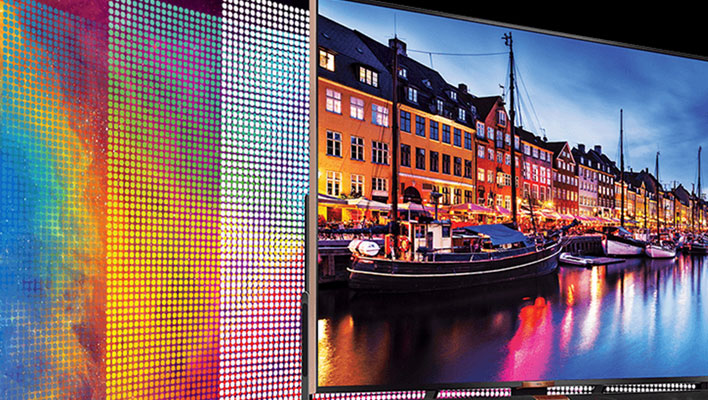The television division of TCL is under the spotlight due to a Korean report purporting to show a few of its quantum dot televisions do not actually have any said quantum dots in them. TCL is firing back to the accusations with its own results proving the contrary. Who do we believe, then? Has TCL been cutting corners with its supposedly
premium QLED tech, or is the initial report part of a larger conspiracy, or just outright wrong?
According to a news piece published on the South Korean news site Electronic Times Internet (ETNews), tests commissioned by Hansol Chemical found that three TCL QLED televisions (specifically TCL C755, C655, and C655 Pro, none of which are sold in the U.S.) didn't contain any traces of the elements used in creating quantum dots.
The commissioned tests were performed by third-party global testing and certification agencies SGS (based in Geneva) and Intertek (based in London). After examining the three TVs, the certification bodies concluded that neither of the two primary elements required for
quantum dots—indium or cadmium—were present, at least in detectable quantities. It must be noted that some news outlets have postulated that Hansol's test may be motivated not out of noblest intentions, but because Hansol happens to be one of the major suppliers for Samsung QLED panels.
TCL was quick to respond to this accusation. In
a statement, TCL stated that it's "manufacturing TV sets with QD films supplied by three companies," therefore "the amount of quantum dots... in the film may vary depending on the supplier, but it is certain that cadmium is included."
To back that up, TCL, which is China's largest TV manufacturer, showed chemical analysis commissioned by one of its QD film suppliers. On May 10, Guangdong Region Advanced Materials commissioned SGS (doesn't that ring a bell) to perform their battery of tests. Interestingly, SGS results showed the presence of cadmium.
What TCL says next is key, though. It added, "The QD content may vary depending on the supplier, but it definitely contains cadmium.” This would imply that customers who walk into a store to buy a TCL QLED TV may not necessarily get similar image performance from one unit to another.
We know that TCL's TV product line compete with the best like Samsung and Sony, while frequently undercutting its rivals in price. We also know that necessary corners had to be cut to achieve that value quotient, but at what cost? If customers (and tests) are finding varying results in quantum dot elements, it's only befitting for TCL to start raising its quality control efforts among all its suppliers.


